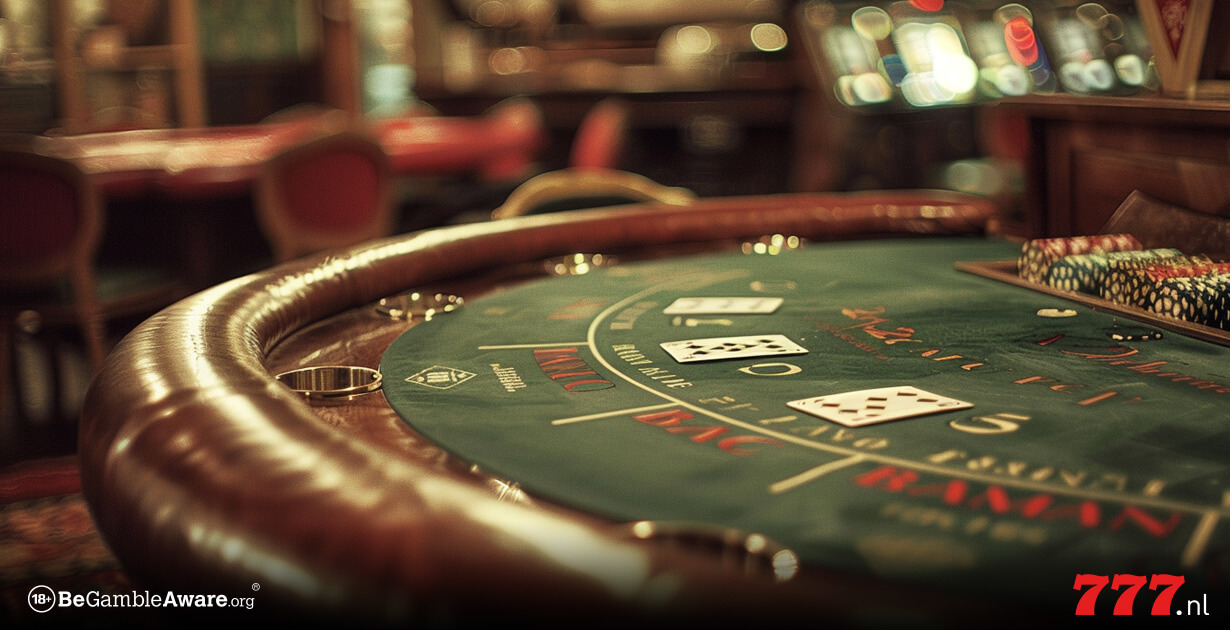When you play online blackjack, you’ll quickly come across different strategies that can help you improve your chances of winning. One of the simplest and most consistent methods is Flat Betting. But what exactly does this strategy entail, and why do many players choose it?
Flat Betting, as the name suggests, is a strategy where you place the same bet every time, regardless of whether your previous hand was profitable or not. This means, for example, that you bet €10 on every hand, no matter the outcome of the previous hand. It’s a straightforward yet effective approach, particularly popular among players who prefer a controlled pace of play.
The Origin of the Flat Betting Strategy
Flat Betting is not a new strategy. The concept has been around since the early days of casino gaming and has remained popular over the years due to its simplicity and reliability. Unlike more complicated systems such as the Martingale or Fibonacci system, which require constantly changing bets, Flat Betting offers a more stable way of playing. The strategy is based on the idea that consistent betting leads to a balanced game flow without unexpected peaks or troughs.
Historically, Flat Betting was often used by players who preferred longer gaming sessions without taking too much risk. In the physical casinos where blackjack was once only played at tables, this strategy was a popular choice. With the rise of online casinos, like Casino777.nl, Flat Betting has maintained its relevance, especially since it helps players stay within a certain budget and avoid impulsive actions.
Benefits of Flat Betting Compared to Other Strategies
One of the biggest advantages of Flat Betting is its simplicity. Unlike progressive systems, where you need to increase or decrease your bet based on previous results, Flat Betting requires no complex calculations or analysis. This makes it ideal for both beginners and experienced players who prefer to place a fixed amount without overthinking.
Additionally, Flat Betting aids in managing your bankroll. By consistently betting the same amount, you avoid the temptation to place large bets after a loss, which often leads to even greater losses. This also makes it an excellent strategy for players who want to play for longer periods without the risk of losing their entire bankroll at once.
Another benefit is that Flat Betting allows you to focus on the game itself rather than on the betting. This means you can pay more attention to the cards and adjust your strategy based on the situation at the table, without worrying about the size of your next bet.
The Risks and Drawbacks of Flat Betting
While Flat Betting seems like a safe and straightforward strategy, there are also some drawbacks that players should consider. One of the biggest limitations of this method is the lack of potential for large wins. Since you always bet the same amount, you miss the chance to maximise your winnings in situations where you win several times in a row.
Furthermore, because your bets remain constant, there is no way to quickly recover losses. In progressive systems like the Martingale, for example, you can double your bet after a loss, which means you can win back a larger amount with a win. This is not the case with Flat Betting, meaning your profitability relies entirely on winning a higher percentage of hands than you lose.
Another potential risk is that Flat Betting can give you a false sense of security. Since the bets are small and consistent, it’s easy to overlook your losses. Over time, these losses can accumulate, especially if you are not careful in monitoring your budget.
Why Flat Betting is Still Often Used
Despite the drawbacks, many players still choose to use Flat Betting, and not without reason. The strategy offers an accessible way to play blackjack without having to worry about large fluctuations in your bankroll. For players who want a relaxed and controlled game without the pressure of constantly changing bet amounts, Flat Betting is an excellent choice.
Additionally, Flat Betting is a good way to get to know the game better, especially for beginner players. Since the focus is not on managing bets, players can pay more attention to the basic rules of blackjack, such as making decisions on when to hit, stand, double down, or split.
Conclusion: Is Flat Betting the Right Strategy for You?
Flat Betting offers a simple way to play online blackjack without much risk. It is especially appealing to players who want to approach their game calmly and without much stress. The strategy has its limitations, especially if you are looking to make big wins quickly, but for many players, the benefits outweigh the drawbacks.
Whether Flat Betting is the right strategy for you ultimately depends on your play style and goals. Always remember, however, that, as with any gambling strategy, responsibility and discipline are key to success.
Frequently Asked Questions about Flat Betting
What is Flat Betting in Blackjack?
Flat Betting is a strategy where you place the same bet on every hand of blackjack, regardless of whether you won or lost the previous hand. Instead of increasing your bet after a win or decreasing it after a loss, you stick to a fixed amount, such as €10 per hand. This approach ensures stable and predictable gameplay, as you do not experience significant fluctuations in your bankroll.
Is Flat Betting a good strategy for beginners?
Yes, Flat Betting is simple and helps beginners manage their bankroll while learning the basics of blackjack.
What are the main benefits of Flat Betting?
Benefits include simplicity, easy bankroll management, and a stable pace of play without large fluctuations.
Are there drawbacks to using Flat Betting?
Drawbacks include limited potential for big wins and difficulty in quickly recovering losses, especially during losing streaks.
How much should I bet when using Flat Betting?
Choose a fixed amount that fits within your budget, such as €5 or €10 per hand, depending on your total bankroll.




